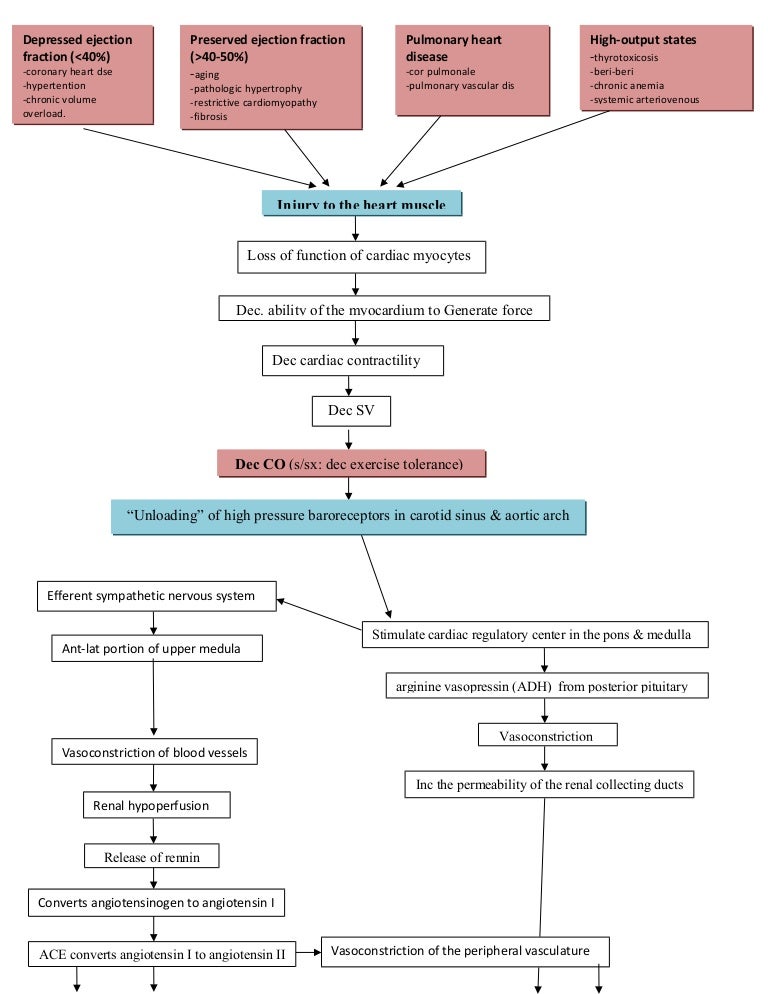
Congestive Heart Failure Pathophysiology. Congestive heart failure chf is the inability of the heart to 1 properly fill the ventricles diastolic dysfunction and 2 effectively pump blood out of the heart systolic dysfunction colucci cohn 2019. First the heart is unable to clear itself with of the delivered blood. Heart failure can be caused by diseases of the endocardium myocardium pericardium heart valves vessels or metabolic disorders. Heart failure can be limited to one side of the heart or affect both the left and right ventricle.

Mild at the start symptoms associated with the pathophysiology of congestive heart failure worsen with time to ultimately threaten heart health. Systolic congestive heart failure occurs when the heart does not pump blood effectively. Treatment for congestive heart failure chf is centered. The pathophysiology of congestive heart failure is the progression of physiological changes that define marked deterioration in heart function. It may happen when the heart muscle is too weak or when another health problem prevents it from circulating. The second factor is how long it takes for the signs and symptoms to develop.
The second factor is how long it takes for the signs and symptoms to develop.
The second factor is how long it takes for the signs and symptoms to develop. The main pathophysiology of heart failure is a reduction in the efficiency of the heart muscle through damage or overloading. Congestive heart failure is a syndrome that can be caused by a variety of abnormalities including pressure and volume overload loss of muscle primary muscle disease or excessive peripheral demands such as high output failure. First the heart is unable to clear itself with of the delivered blood. Treatment for congestive heart failure chf is centered. In addition to the fact that chf indicates that the heart is unable to maintain sufficient oxygen.